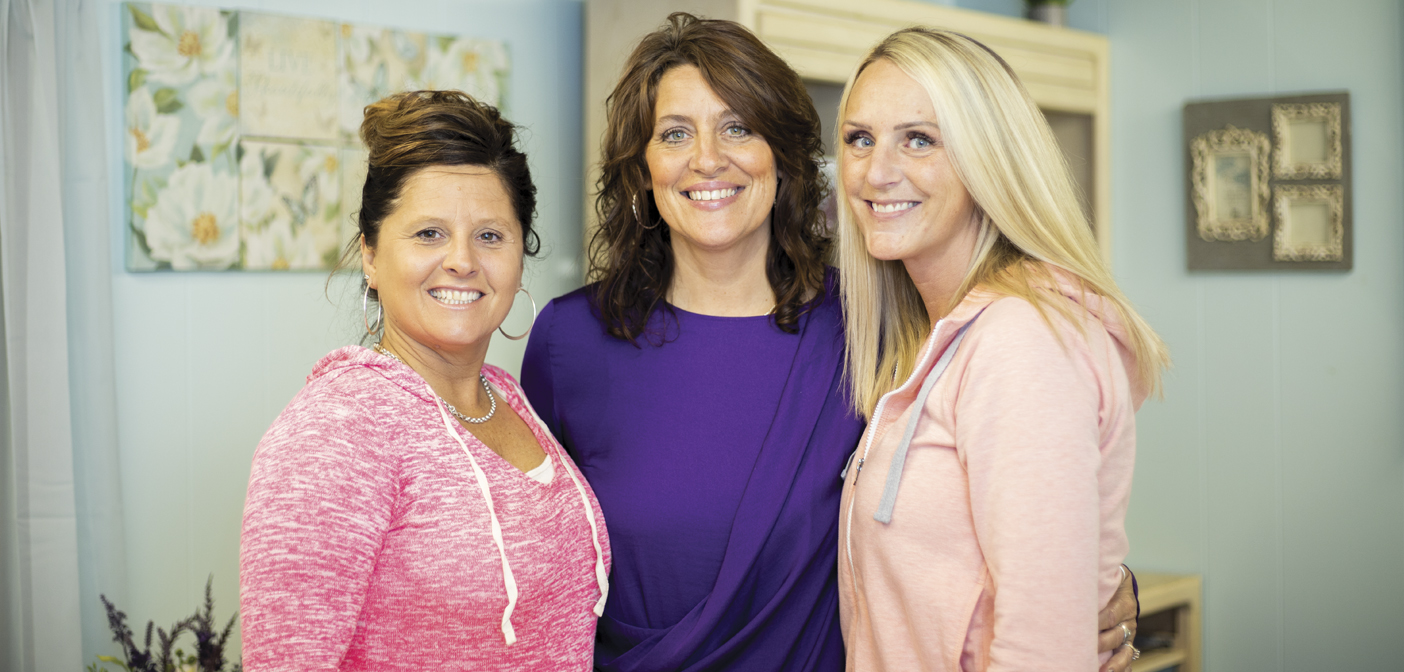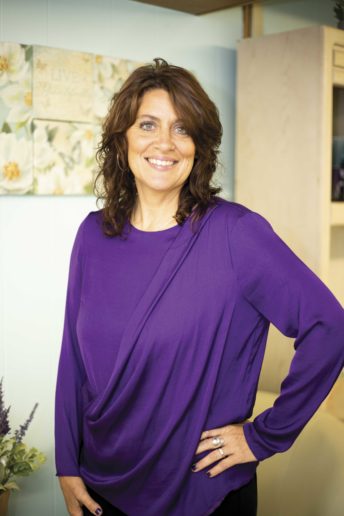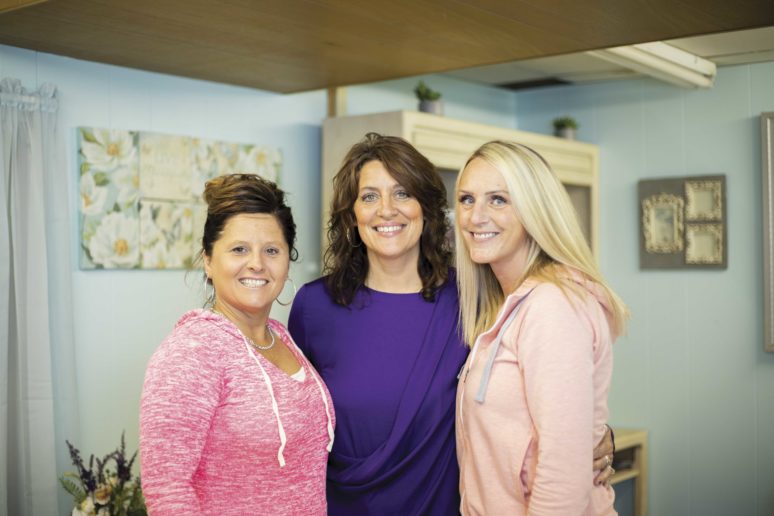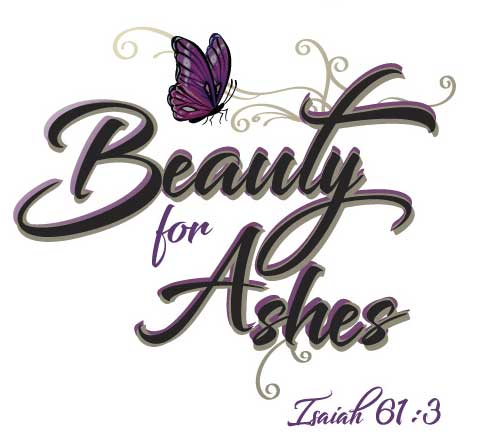Dana Oliver is the founder of Beauty for Ashes, a community of loving and compassionate individuals dedicated to the outreach, awareness and prevention of sex trafficking. The faith-based organization wants to bring survivors of sex trafficking the hope of a new and empowered life through the love of Jesus.
Oliver grew up in Genesee County and admits to making many bad decisions when she was young. “I ran away when I was 14,” she shares. “I knew how easy a girl can be manipulated and it’s only by God’s grace that I wasn’t trafficked.” About five years ago, she wanted to learn more about human trafficking and began working with a group, Michigan Abolitionist Project (MAP), which has a mission to prevent modern-day slavery. “The more I learned, the more it broke my heart,” she admitted. This is when she felt a calling to help shed light on human trafficking.
The organization recently opened the Beauty for Ashes Empowerment Center (location not for public knowledge). Established in the Flint area, where sexual exploitation continues to be on the rise, the Center is a community created for women currently or previously victimized by, or at risk for sexual exploitation. The Center will focus on four levels of support: emotional, mental, personal and spiritual. The facility first provides a safe place to meet basic needs. They address life skills, health and well-being, and prepare the women for independence.
So far, they have seen multiple girls at the Center. “We do street outreach,” Oliver reports. “We drive the streets and reach out to women who appear to be in need of assistance.” When they see a girl who appears to be vulnerable, they pull over and talk to her. “Most of the time, we get a good reception,” she shares. “They call us the ‘Church Ladies.’”
Many people believe that human trafficking doesn’t happen in their own backyard, but it is occurring everywhere. Girls in the foster care system are especially vulnerable, says Oliver. One girl they were working with was in 14 different foster homes and was sexually molested in all of them. She then met a man (who became her pimp) and he told her how much he loved her, creating a “trauma bond.” Traumatic bonding occurs as the result of ongoing cycles of abuse in which the intermittent reinforcement of reward and punishment creates powerful emotional bonds that are resistant to change. “Trauma bonds are a huge problem in trafficking,” Oliver explains. “The girls are so in love with the men (pimps). That is how they are so easily manipulated.”
Victims of sexual exploitation also struggle with drug addiction. The girls are started on drugs to keep them coming back, and the addiction keeps them from getting the help they need. “Some of the girls don’t want to leave what is familiar to them,” Dana explains, “or they fear going someplace where they can’t get the drug they are addicted to.”
“He will give a crown of beauty for ashes, a joyous blessing instead of mourning, festive praise instead of despair. In their righteousness they will be like great oaks that the Lord has planted for HIS own glory.” Isaiah 61.3
Volunteers at Beauty for Ashes complete mandatory training on dealing with trauma. They help victims of human trafficking get any professional help they need, such as obtaining IDs or birth certificates. They also teach life skills and will refer victims to the women’s shelter or to two safe houses in the area. Volunteers are often asked, “why do you do this?” Their answer: “We are just sharing with them the love of Christ.”
At the Empowerment Center, volunteers will just sit and listen to the victims and let them know that they are valued. They also take the girls to church services. “Everyone there is really caring and nobody judges them,” Dana says.
There are four churches that supply volunteers who make lunches for the women and girls. “We give them a good, healthy meal and we pray with them. Some are so broken. All they need is a little bit of hope.” There is also a work and craft room where they can make crafts and learn to sew.
According to Oliver, it takes a long time for victims of sexual exploitation to get better. “I’ve learned a lot about trauma,” she says, adding that the victims really can’t reason or think rationally, and many are stuck in “trauma mode” – freeze, fight or flight. “They can’t look at the consequences, and it can be very frustrating.”
Beauty for Ashes primarily reaches out to women who are in their 20s, 30s and 40s. “Young girls who are being trafficked aren’t out on the street,” says Oliver, “they are sold online.”
Currently, the Center is open two days a week for adults and their hope is to be open one day a week for minors. “We truly believe we will see many girls here,” says the founder. “We are a safe place for them to go. They have no hope and this is life-changing for them. We are here to bring them hope. That is really what we are all about.”
Excerpt from Renting Lacy: A Story of America’s Prostituted Children
“The National Center for Missing and Exploited Children estimates that each year, at least 100,000 children are the human products meeting the demand of the sex trafficking industry in the U.S. The statistics are staggering. The individual stories are heartbreaking. These are girls as young as 11. Girls who haven’t reached puberty, children who should be in the fifth grade.
Their skin is of every color. Some come from ‘good homes’ and have families searching desperately for them. Others are runaways, or children in foster care who have already been victimized and traumatized within the walls of their homes — and have no one searching for them. These children had dreams. Some could sing, others danced and put on plays. Some were great at sports or loved to draw and paint. Now, they are called ladies of the night, lot lizards, bitches, whores, sluts, hookers and hos.
This is America. The land of opportunity. The land of the free, home of the brave. These children are America’s children. They’re our neighbors. They’re our children’s classmates. They’re in our very homes. They are our children. We must save them.”
Photography by Kayce McClure









































